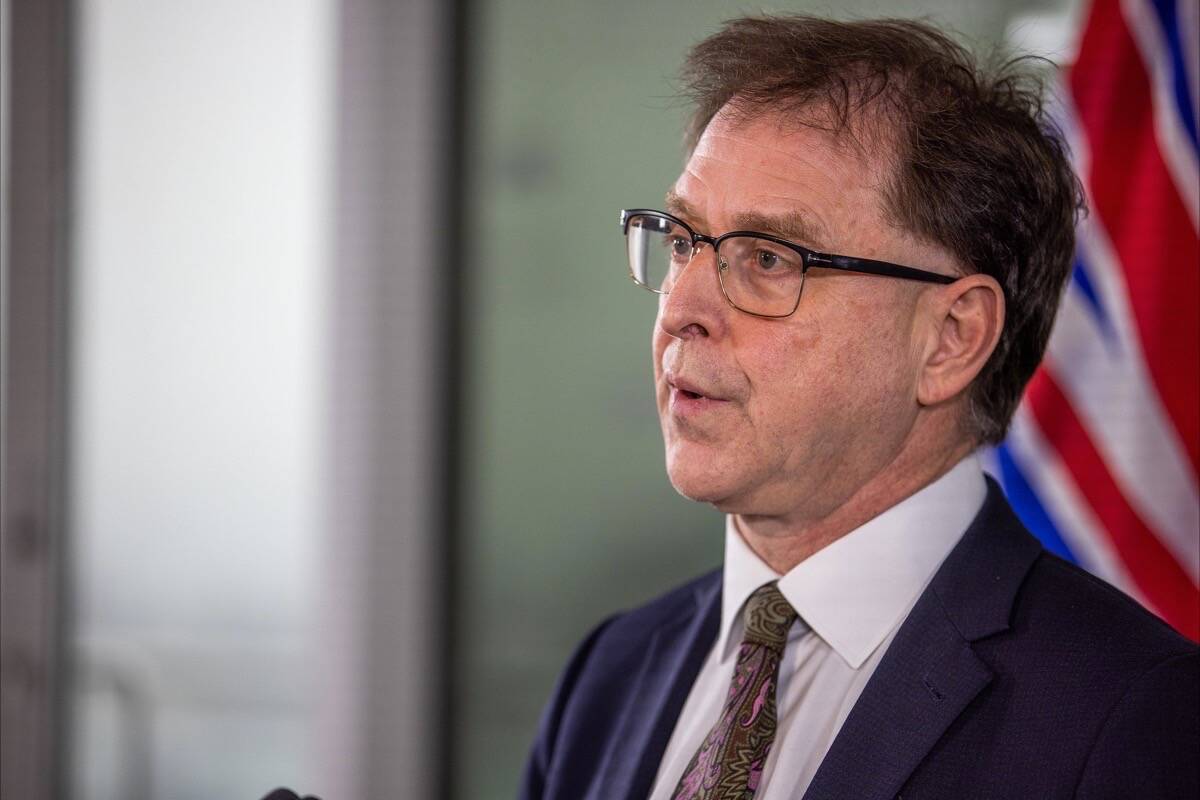B.C. Health Minister Adrian Dix announced that the province will invest $118 million in interim funding to support family doctors as the province and physicians work on developing a new compensation model.
Dix stood alongside Dr. Ramneek Dosanjh, president of Doctors of B.C. on Aug. 24. The interim funding will help doctors cover overhead costs to maintain their existing family practices. Dix said that the funding will “stabilize” B.C.’s primary care system while long-term solutions are developed.
READ MORE: B.C. family doctor shortage sparks hundreds to rally in Victoria
“Today’s announcement is a first step to help family doctors keep their doors open for patients until we can develop and implement a new payment model,” Dosanjh said. “We’ve heard loud and clear from our doctors that this is a much-needed step that we cannot allow clinic closures to continue at the rate they have been.”
Dosanjh added that negotiations around a new compensation model for physicians will unfold over the next four months.
The funding will be in place for doctors who provide ongoing services to their patients and who pay overhead costs. As well, primary care clinics, including walk-in clinics, that commit to remaining open and maintaining consistent clinic hours can apply for funding on behalf of the clinic and doctors working in it. Funds will cover the period from Oct. 1, 2022 to Jan. 31, 2023.
The funding comprises $75 million from the Ministry of Health and $43 million from the General Practices Services Committee, a collaborative committee co-chaired by the Ministry of Health and Doctors of B.C.
B.C.’s current fee-for-service payment model has created financial barriers to physicians wanting to practice family medicine. Physicians currently receive only $30 per patient, regardless of the complexity of the health care needs.
The new payment model will likely be based on how much time physicians spend with patients.
Dix said action is also underway to support and improve patient access to primary care. B.C. will work to recruit and retain family doctors and increase training capacity.
“These actions are ongoing and progress is being made. We will report on our achievements as they are ready to launch.”
READ MORE: B.C. family doctors say time-based payment model one way to create less stress, better care
Patient access needs to come first, expert says
Dr. Rita McCracken, a family physician and assistant professor of medicine at UBC, said that efforts to increase compensation for family physicians are well-intended, but patient access to primary care needs to be at the centre of B.C.’s approach to solving the doctor shortage.
As for the interim funding, McCracken said it does little to address the issues facing B.C.’s primary care system.
“Let’s imagine that our public school system was in the same state as primary care where there were one-million kids who couldn’t get access to schools, teachers were just quitting and closing down their schools, and we decided to give each teacher $30,000. You can see what kind of solution we might get from that is there might be a few teachers who stop their thoughts of actively quitting, but it doesn’t address the problem of all those kids not having access to school. And we have the same problem with primary care.”
McCracken said that the primary care model is outdated and should focus more on integrated health teams rather than focusing solely on physicians.
“The gold standard of primary care is team-based care, which is not just a physician sending a prescription to a pharmacist at a community pharmacy. It’s a fully integrated clinic where you’ve got various other health professionals providing direct care to patients and alleviating time demands on the physician so they can see the patient and do the medicine.”
@SchislerCole
cole.schisler@bpdigital.ca
Like us on Facebook and follow us on Twitter.

